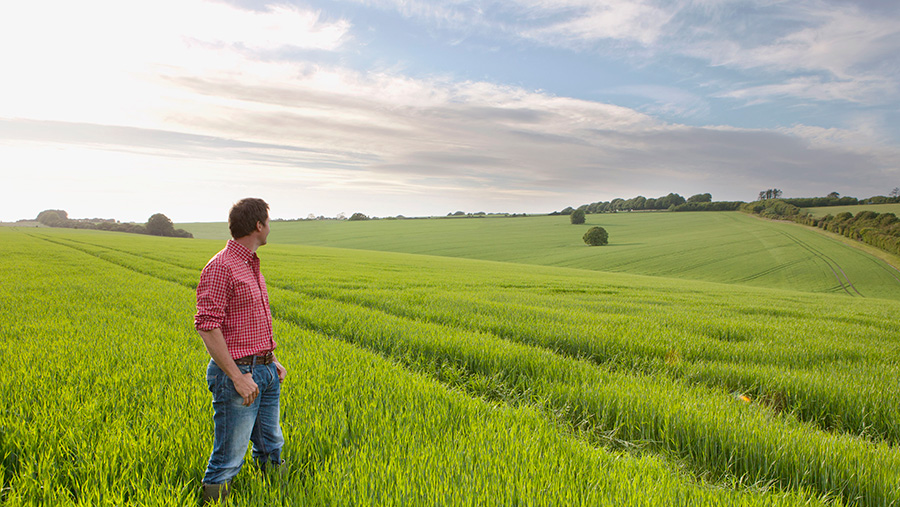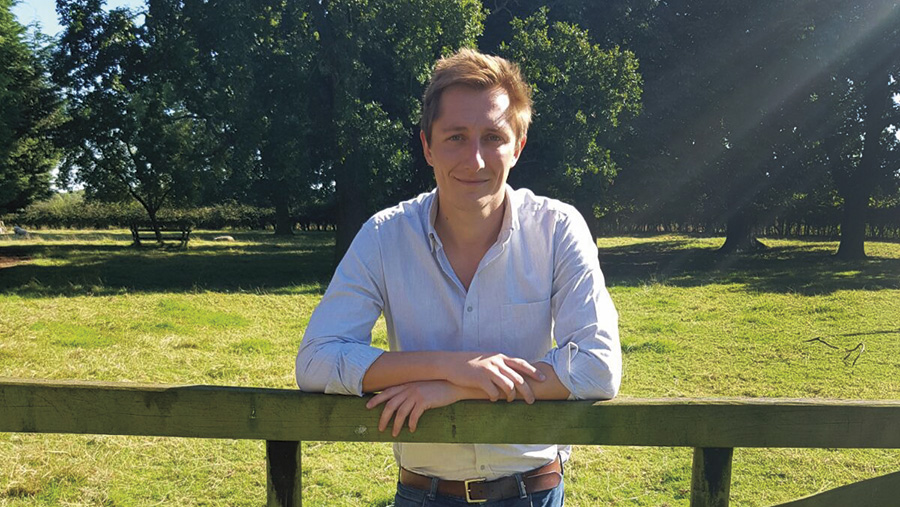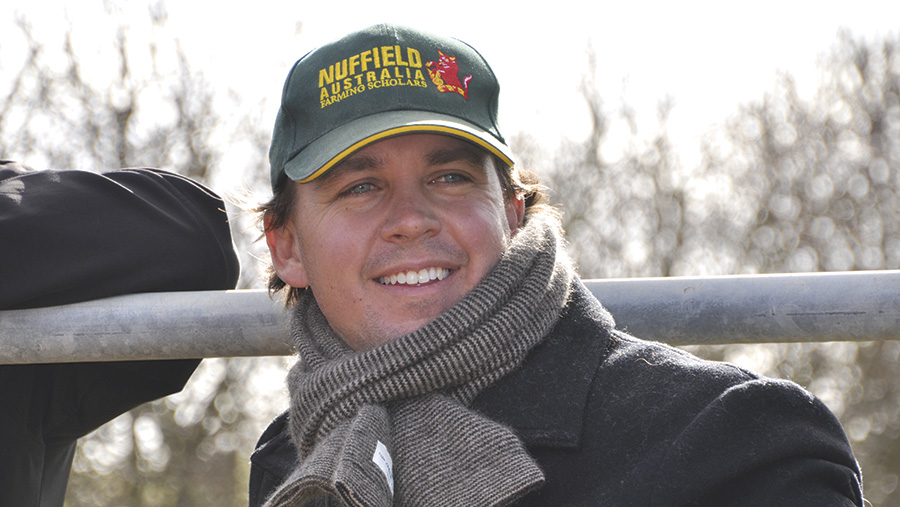How an agriculture leadership course could help your farm
 © Juice/REX/Shutterstock/
© Juice/REX/Shutterstock/ While leadership might come naturally to some, for others it requires learning new skills and practices.
The Worshipful Company of Farmers, which represents agriculture in the City of London and helps develop professionalism in the industry, offers the Challenge of Rural Leadership (CRL) course annually.
“The future of rural and agricultural industries is in a very challenging position,” says Richard Soffe, director of the Duchy College’s Rural Business School, which runs the course.
Strong leaders to develop new policies
“Strong leaders are needed to guide us through these times of upheaval and those are the voices that will be heard when new policies are drafted.”
Challenge of Rural Leadership Course
The 21st Challenge of Rural Leadership Course runs from 22 January to 4 February 2017.
Closing date for applications is 14 October, with interviews held in London in early November.
The panel looks for delegates who can generate a long-term benefit for the agricultural industry but there are no qualification requirements.
For more information call 01579 372 365 or visit the Rural Business School’s website.
The two-week residential course is in its 21st year and hosts 18 delegates from a wide cross-section of the industry and countries.
Based at Dartington Hall in Devon, the course is an intensive programme of management and leadership skills, delivered by about 30 speakers.
Business review
Delegates undertake a strategic review of a leading agri-business, which is later presented back to the business owners, and are individually profiled to help them understand their own strengths, weaknesses and leadership style.
Other elements include media skills, motivation and communication with staff, as well as financial, political and environmental issues.
“The aim is to provide high-achieving farmers and managers with the skills and capabilities to grow and thrive in continuously changing and increasingly challenging conditions,” says Mr Soffe.
Case study: James Mills
West Yorkshire advisor at the NFU north east office

James Mills
James Mills, a farmer’s son, reckons strong leadership is needed both in individual businesses and organisations such as the NFU, particularly in the context of Brexit.
He found the course showed the need to look further afield than the daily grind of farming business. “It clarified the need to step back and to watch and understand what others are doing,” says Mr Mills.
It helped him implement clear plans and strategies. “These help guide decisions and help me to see them from a removed perspective.
“It also highlighted that you need to be able to react and take opportunities as they come along,” he says.
Mr Mills successfully applied for the post of European policy advisor at the NFU in Brussels immediately after the course in 2015. He has since returned home as West Yorkshire NFU advisor – a role that he can fulfil alongside diversifying the family farm.
Case study: James Walker
Farmer, entrepreneur and Nuffield Scholar, Australia

James Walker
James Walker attended the CRL course in January 2015, and soon after co-created the UK dairy chief executive officer business summit, which took place in November 2015.
“This has developed further since the CRL course, which gave me the skills to communicate with any leader,” he says.
Mr Walker is also founder of Agrihive, which tackles global crisis points in agriculture. He has recently been instructed by the office of the Australian prime minister and Department of Agriculture to address financial literacy in farming and agriculture.
A fifth-generation farmer and Nuffield scholar on an 8,000ha farm in Longreach, Queensland, Mr Walker saw many different leadership styles on the course, and realised the issues with leadership and agriculture are universal.
“The personal profiling challenges your own leadership style, then empowers it. Knowing yourself is the greatest notion you can have as a leader,” he says.
“It gives you good clarity on who you are and how you can effect change.”
Mr Walker says he was always open to opportunities but did not commit readily or rapidly to them.
“I did not want to pull the trigger on something that may or may not work,” he says.
But now he has the building blocks to act quickly, able to calculate situations decisively.
This came to the fore when Mr Walker anticipated a prolonged period of drought and its impact on his farm, which had 22,000 Merino sheep, 5,000 beef cattle and produced 65,000 bales of hay.
To reduce exposure to the drought, he diversified out of agriculture, selling the stock and renting out the land.
He is now building a 15MW solar farm and has set up a tourist operation: The Outback Yacht Club on the artesian aquifers.
The limitations people have in life are usually self-imposed, believes Mr Walker. “If you want to change something for the better you can: Anything is possible.”
Other courses
The Worshipful Company of Farmers (WCF) advanced course in agricultural business management – a three-week residential course at the Royal Agricultural University, Cirencester
The WCF Scholarship for Cranfield MBA courses – full-time or part-time courses for post-graduates at the Cranfield School of Management, Bedfordshire
The Institute of Agricultural Management leadership development – three week course run every other year, with one week each at the Royal Agricultural University, in Brussels and in London
Case study: Simon Haley
Rural business advisor and founding director of SRH Agribusiness
Simon Haley has made drastic changes to his business since attending the CRL course in January 2015.
An independent rural business advisor and associate of Reading Agricultural Consultants, he has since also started working in partnership with a fellow delegate on the course.
Attending the course gave Mr Haley the confidence to move forward, enlisting a local business mentor to help him set up a limited company, SRH Agribusiness.
“I went on the course with the objective of gaining more focus on what I was doing and to make my involvement more effective,” he says.
“I wanted to become an expert in both rural consulting and social media.”
Growing his business so rapidly meant Mr Haley’s time was going to be the most limiting factor, and he learned to assess whether something was worthwhile or not.
“There are things that might be good to do, but do not earn any money.”
The course also helped him find the right work-life balance as before he could quite happily work seven days a week.
“I learned that it is OK to talk to others about my ideas and to open up more,” he says. “The course provided me with a select group of people who are in the same boat, and problems shared have become problems halved.”
Learning to be a good leader is a vital part of the course and Mr Haley found it was as much about the individual as the other people involved.
“Being a good leader is not about having the loudest voice, but listening to what the group says.
“A good leader needs a good team behind them; to listen to other peoples’ views and make informed decisions on the back of them.”
As a direct result of the course, Mr Haley has joined up with another delegate, Alison Teare, to pool their skills and resources in digital marketing.
They are now launching a social media joint venture.
“It will help us to present more unity and a cohesive structure to our clients in the food, farming and rural industries,” he explains.
Mr Haley is now one of the speakers on the CRL course, and has attended an additional course focusing on agricultural business management.
“The course reinforced that it was the right decision to become self-employed and gave me belief and confidence in myself.”
